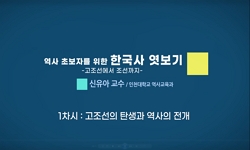본 연구는 15~16세기 朝鮮과 明이 교류하는 가운데 발생한 ‘禮義之國’ 담론을 분석하고, 이것이 朝明간 외교에 어떠한 영향을 미쳤는지 재구성함으로써 조선 전기 對明關係의 특성을 파악...
http://chineseinput.net/에서 pinyin(병음)방식으로 중국어를 변환할 수 있습니다.
변환된 중국어를 복사하여 사용하시면 됩니다.
- 中文 을 입력하시려면 zhongwen을 입력하시고 space를누르시면됩니다.
- 北京 을 입력하시려면 beijing을 입력하시고 space를 누르시면 됩니다.

일반논문 : 조선 전기 조명(朝明)외교관계의 함수, "예의지국(禮義之國)" = Diplomatic function between Joseon and Ming Dynasty in Early Joseon, “yeeuizigook(禮義之國)”
한글로보기https://www.riss.kr/link?id=A100412340
- 저자
- 발행기관
- 학술지명
- 권호사항
-
발행연도
2015
-
작성언어
Korean
-
주제어
朝鮮 ; 明 ; 朝明關係 ; 朝貢冊封 ; 事大 ; 禮義之國 ; 조선 전기 ; 16세기 ; 中華 ; Joseon Dynasty ; Ming Dynasty ; Tribute system ; yeeuizigook ; Perception for Ming Dynasty ; The relationship between the Joseon and the Ming Dynasty ; Early Joseon ; 16th Century
-
등재정보
KCI등재
-
자료형태
학술저널
-
수록면
159-203(45쪽)
- DOI식별코드
- 제공처
- 소장기관
-
0
상세조회 -
0
다운로드
부가정보
국문 초록 (Abstract)
본 연구는 15~16세기 朝鮮과 明이 교류하는 가운데 발생한 ‘禮義之國’ 담론을 분석하고, 이것이 朝明간 외교에 어떠한 영향을 미쳤는지 재구성함으로써 조선 전기 對明關係의 특성을 파악하고자 하였다. 明代朝鮮은 여타 朝貢國들에 비해 다양한 측면에서 優待를 받았다. 이는 15세기를 지나면서 조선이 명에 至誠事大해 온 前例가 함축되어 ‘朝鮮=禮義之國’이라는 국가 위상이 형성되었기 때문이다. ‘朝鮮=禮義之國’이라는 위상으로 외교적 우대혜택을 받자, 이제 예의지국 담론은 조선의 입장에서 명에 대해 조선의 국가 이미지를 자임하며, 실질적인 대명 외교정책을 전개하는 이름이 되었다. 그리고 明역시조선에 대한 외교정책에 예의지국 담론을 고려해야 하는 도그마가 됨으로써, 明-朝鮮양자 간의 ‘특수한 외교형태’가 조성되었다. 이제까지 조공책봉관계라는 역사적 개념은 중국이 조공국에게 강력한 영향력을 행사하는 일방적 관계였다고 이해하는 경향이 있다. 그러나 실상 조선 전기 조명관계에서는 명 또한 조선의 요구를 존숭 및 신뢰하고, 조선에 대한 배려에서 자유롭지 못했다. 명의 조선에 대한 ‘특별한 대우’ 속에서 조선은 스스로의 위상을 ‘명의 內服’으로 여기며, 명에 心象的으로 더욱 긴밀한 관계를 구축해 나갔다. 16세기 조선의 對明事大성격의 이면에는 조선의 위정자들이 지성으로 사대하게 추동한 ‘상호관계적 사유’가 존재했었다. 본 연구에서는 ‘예의지국’ 담론이 朝明간의 외교에 어떠한 영향을 미쳤는지 추적함으로써 思想史的측면만으로 이해되기 어려웠던 15~16세기 조명관계의 구조를 보다 다각적으로 살펴보고자 하였다.
다국어 초록 (Multilingual Abstract)
This study is aimed to analyze the discourse of "yeeuizigook``(禮義之國)" arising out of the exchange of Joseon with Ming Dynasty in 15th and 16th centuries and its impact on the diplomacy between the two countries in order to examine the characte...
This study is aimed to analyze the discourse of "yeeuizigook``(禮義之國)" arising out of the exchange of Joseon with Ming Dynasty in 15th and 16th centuries and its impact on the diplomacy between the two countries in order to examine the characteristics of the relationship of Joseon with Ming Dynasty in the early periods of Joseon Dynasty. Joseon was privileged by Ming in many respected compared to other tributary states. This is because Joseon obtained the national status of ``Joseon = yeeuizigook(禮義之國)`` as the accumulated consequences of toadyism toward Ming in 15th century. As Joseon was privileged in diplomatic relationship with Ming with the national status of ``Joseon = yeeuizigook(禮義之國)``, the discourse of ``yeeuizigook(禮義之國)`` became the national image of Joseon toward Ming and the catch phrase in the practical diplomacy of Joseon to Ming. In addition, it became a dogma for Ming which had to be taken into account in the diplomacy with Joseon so a ``special diplomatic relationship`` was established between Joseon and Ming. There is a tendency to understand that the historical concept of tributary state is one way relationship in which China had strong influence on the tributary states. However, in the relationship between Joseon and Ming in the early Joseon Dynasty period, Ming also respected and trusted the demands of Joseon and was considerate for Joseon. With such privileged treatment, Joseon established stronger relationship with Ming Dynasty. There existed ``mutual cause`` behind the toadyism toward Ming for the hypocrites of Joseon to facilitate toadyism among the elites in the 16th century.
동일학술지(권/호) 다른 논문
-
특집논문 : 무명(無名)의 선비, 기록으로 말하다 ; 무명자(無名子) 윤기(尹기)의 생애(生涯)와 교유(交遊)
- 성균관대학교 대동문화연구원
- 이규필 ( Gyu Pil Lee )
- 2015
- KCI등재
-
특집논문 : 무명(無名)의 선비, 기록으로 말하다 ; 18세기 후반 서울의 도시상(都市相)과 尹기의 시선
- 성균관대학교 대동문화연구원
- 안대회 ( Ahn Dae Hoe )
- 2015
- KCI등재
-
특집논문 : 무명(無名)의 선비, 기록으로 말하다 ; 무명자(無名子) 윤기(尹기)의 동몽시(童蒙詩)와 그 세계(世界)
- 성균관대학교 대동문화연구원
- 진재교 ( Jin Jae Kyo )
- 2015
- KCI등재
-
특집논문 : 무명(無名)의 선비, 기록으로 말하다 ; 한문 고전의 제목 번역과 작품 해제 작성에 대한 시론(試論)
- 성균관대학교 대동문화연구원
- 강민정 ( Min Jeong Kang )
- 2015
- KCI등재




 KCI
KCI KISS
KISS







